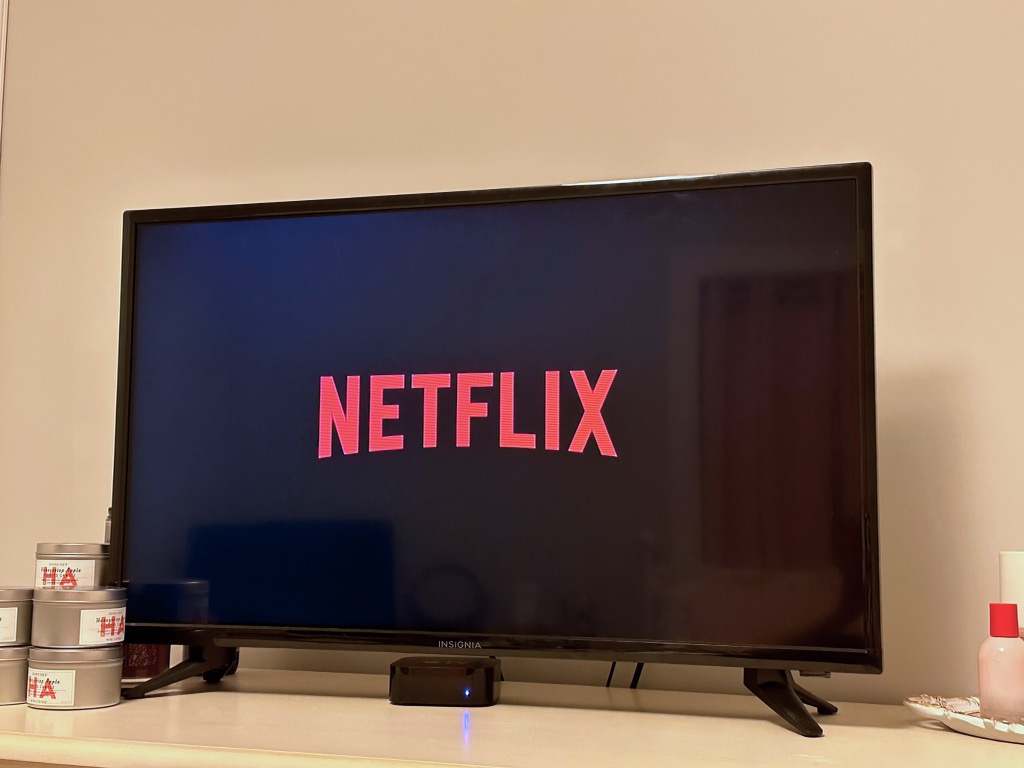Netflix has fallen victim to greed with its new crackdown on password sharing, leaving binge-watchers and movie-fanatics alike to wonder if the high prices are worth mediocre entertainment options.
In May, the company announced that it would be focusing on eliminating password sharing for those accounts spanning across different households. This brought up issues for many, as it is common practice for families and friends to share accounts. Now, out-of-household users have been given the option of either creating a whole new account under their name and paying monthly, or adding a monthly $7.99 fee to the preexisting account in order to continue sharing the password.
College students living out of state, like myself, are now having to face the increased security around the streaming service. Students who are using their parents’ accounts have had pop-up notifications that force them to enter a code that is sent to the email the account is associated with.
What Netflix has failed to realize is that its greed is going to result in a loss of business.
Young people will create Netflix accounts with their friends to split the monthly payment of $15.49 for a subscription without ads. If those individuals are now having to pay the added fee of adding one more person to an account, that price increases to $23.48. The heightened prices have led to people consider canceling their accounts instead of continuing to pay these fees that are just seeming to rise.
Netflix has also gotten rid of its basic $9.99 plan, leaving users the choice to pay $6.99 for shows with ads or $15.49 for no ads. This has caused outrage among users, with some taking to X (formerly Twitter) to release their frustrations.
With the constant increase in prices and now the added fees to add another person onto one account, viewers have been considering canceling their Netflix accounts altogether. Yet, even with all of the backlash that the company has faced since the announcement, its revenue has increased, with 5.9 million new paying subscribers.
Password sharing is not an outlandish occurrence and has been normal with the rise of streaming services in the past few years. Young people will share their accounts with family and friends to catch up on popular shows or even just to get more use out of the money that they are spending on the account.
If anything, password sharing could increase the views and publicity that shows have been getting. If an individual cannot afford a personal Netflix account and decides to share with one of their friends, the multi-billion dollar company is getting another viewer and fan of their show.
The last thing Netflix should be worried about is people sharing accounts with the amount of money and lack of content that fills the service. Many complain that Netflix has nothing of substance to watch anymore and they just revert to watching older shows like “Gilmore Girls,” “Shameless” or “Grey’s Anatomy.”
Netflix has continued to increase its price in the years since it first converted to a streaming service and though it has continued to enrage customers, Netflix is still one of the highest-grossing streaming companies, ending 2022 with 230.75 million global subscribers.
Netflix does not need to and should not crack down on password sharing. Not only will it put them at risk of losing subscriber loyalty, but it also enrages those that want to subscribe but couldn’t afford it. Customers will have to pay an even higher rate due to something as menial as letting a friend watch the newest trending show.









MAC • Nov 25, 2023 at 1:37 am
I do think that Netflix’s new policy is sexist and ageist- pink tax adjacent because it is most likely going to impact sandwich generation women the most. I am in that category and am taking care of both children in college as well as parents and not in my home. I am not going to give extra allowance to my kids to pay for Netflix, nor should I pay so much extra as a single head of household for doing what we’ve always done. Clearly, C-suite, BOD and main decision-makers are male and/or single with few dependent and focused on their own easy gain. I would hope this totally retro anti-female, anti-family, and money grabbing culture causes a big cancel reaction, but they must have made a somewhat informed decision to burn specific segments of society, in an “it’s us, or them” for their shareholders so that c-suite and BOD can keep their jobs. Sadly, older women who aren’t rolling in the same dough as their C-suite, activist shareholders, investors, and BOD are their acceptable casualties.